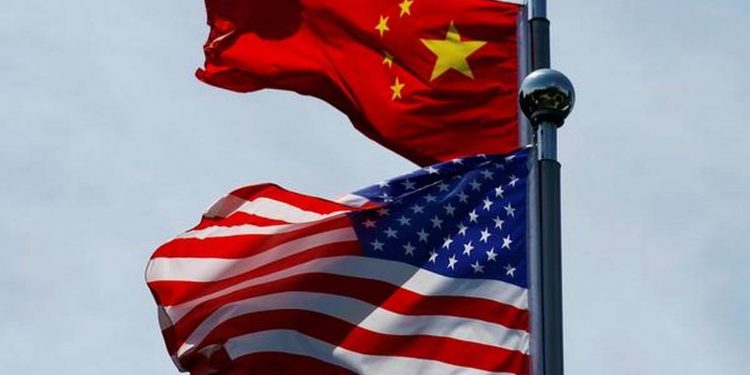China on Thursday threatened to make a “legitimate and necessary” retaliation over the US sale of $1 billion worth of missiles to Taiwan as Beijing becomes increasingly strident over its claims to the self-ruled island.
The US State Department said on Wednesday it had approved the sale of 135 air-to-ground missiles to Taiwan in a move Taipei’s defence ministry said would build its combat capabilities.
Democratic and self-ruled Taiwan lives under constant threat of invasion by authoritarian China, whose leaders view the island as part of their territory.
They have vowed to one day seize the island, by force if necessary.
China’s foreign ministry on Thursday accused the United States of violating agreements signed by Beijing and Washington in the 1970s establishing diplomatic relations between the two governments.
The sale is “sending a very wrong signal to separatist forces advocating for Taiwan independence, and seriously damages China-US relations,” ministry spokesman Zhao Lijian said at a regular press briefing.
Zhao said China would “make a legitimate and necessary response depending how the situation evolves.”
Beijing has ramped up diplomatic and military pressure on Taiwan since the 2016 election of President Tsai Ing-wen, who views the island as a de facto sovereign nation and not part of “One China”.
Chinese fighter jets and bombers have entered Taiwan’s air defence zone with increasing frequency in recent months, while propaganda films have shown simulated attacks on Taiwan-like territories.
Meanwhile China has launched a diplomatic offensive aimed at courting Taiwan’s few official allies.
Taipei has diplomatic relations with just 15 national governments currently.
The previous three US administrations were wary of big-ticket arms deals with Taipei for fear of incurring Beijing’s wrath.
President Donald Trump has been much less squeamish about such sales, but his commitment to Taiwan’s defence has been called into question by his “America First” doctrine and on-again, off-again affection for Chinese leader Xi Jinping.










